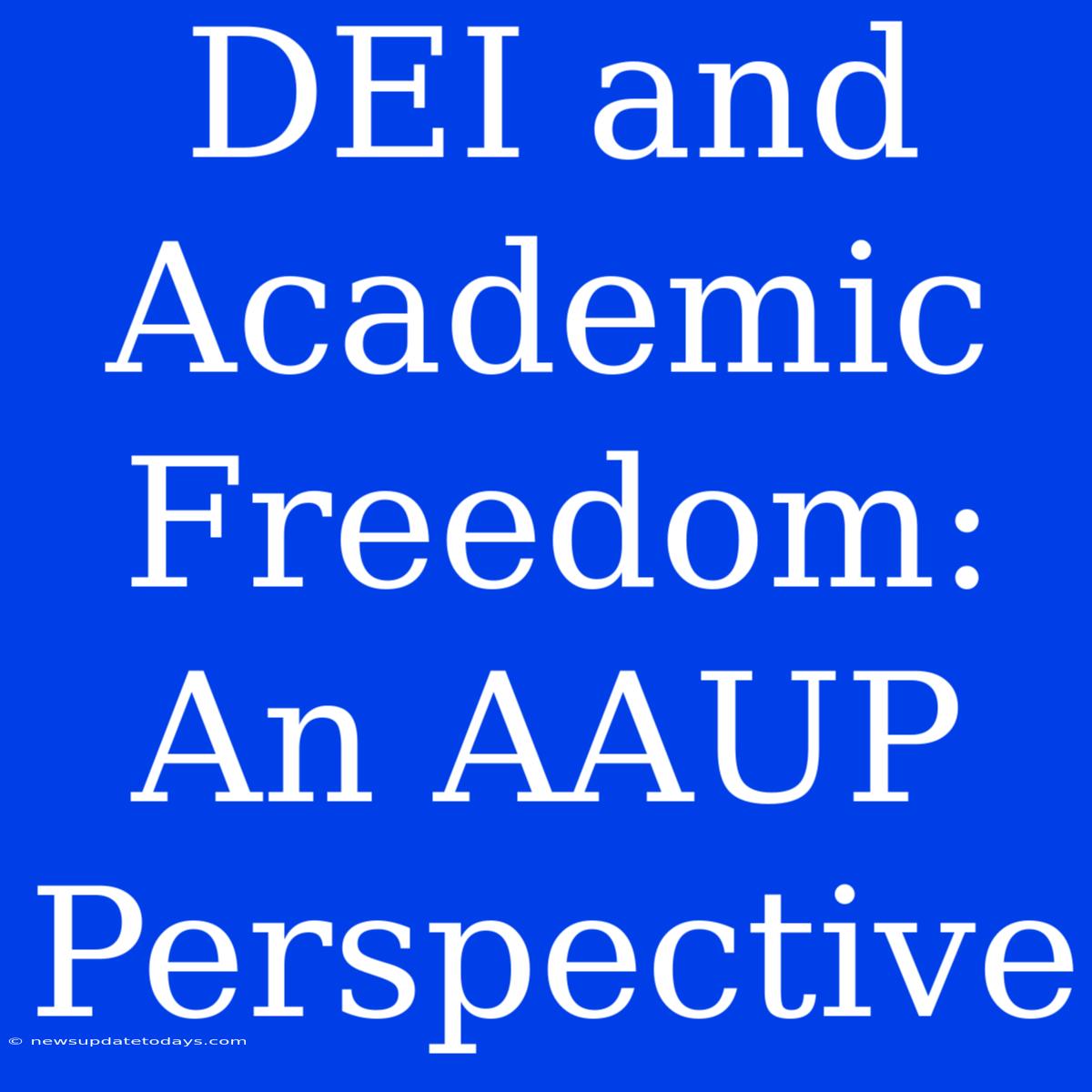DEI and Academic Freedom: Navigating a Complex Relationship
The intersection of Diversity, Equity, and Inclusion (DEI) initiatives and academic freedom is a critical and often contentious area within higher education. The American Association of University Professors (AAUP) recognizes the vital importance of both, yet acknowledges the potential for conflict and misunderstanding. This article explores the AAUP's perspective, highlighting the crucial need for a nuanced approach that safeguards both principles.
Balancing DEI and Academic Freedom: A Necessary Tension?
The core of the challenge lies in reconciling the goal of fostering inclusive and equitable learning environments with the protection of faculty members' rights to explore controversial ideas and express diverse viewpoints, even those that might be unpopular or challenge dominant narratives. The AAUP firmly believes that these two values are not mutually exclusive but rather mutually reinforcing. A truly inclusive academic environment must allow for robust and open intellectual inquiry, even when that inquiry leads to uncomfortable or challenging conversations.
Where DEI Initiatives Can Potentially Infringe on Academic Freedom
Concerns arise when DEI initiatives are implemented in ways that:
-
Restrict faculty's freedom of expression: Policies that overly constrain what faculty can say or teach in the classroom, especially if those constraints target particular viewpoints or perspectives, can directly infringe on academic freedom. The AAUP emphasizes the importance of clear, transparent, and narrowly tailored policies that avoid chilling effects on faculty speech.
-
Promote ideological conformity: A focus on achieving specific DEI outcomes can, inadvertently, pressure faculty to conform to particular ideological positions, thereby stifling the free exchange of ideas that is central to the academic enterprise. The AAUP advocates for an environment where diverse perspectives are valued and respected, not suppressed.
-
Lead to biased investigations or disciplinary actions: Investigations or disciplinary actions targeting faculty based on their expressed views, even if those views are controversial or unpopular, can create a climate of fear and self-censorship. The AAUP advocates for fair and impartial procedures that protect due process rights and uphold the presumption of innocence.
The AAUP's Stance: Protecting Both Values
The AAUP's position is clear: both DEI and academic freedom are essential for a healthy and vibrant academic community. The organization supports DEI initiatives aimed at creating a more inclusive and equitable campus climate. However, it strongly opposes any policies or practices that would undermine or restrict academic freedom. The key lies in finding a balance, ensuring that DEI efforts are implemented in a way that promotes inclusivity without sacrificing the principles of free inquiry and open debate.
Practical Steps for Balancing DEI and Academic Freedom
The AAUP suggests several practical steps to ensure a harmonious relationship between DEI and academic freedom:
-
Develop clear and transparent policies: Institutions should establish policies that clearly define the boundaries of academic freedom and DEI initiatives, ensuring that they do not conflict.
-
Engage in open dialogue: Open and respectful dialogue between faculty, administrators, and students is crucial to addressing concerns and finding common ground.
-
Provide robust due process protections: Fair and impartial procedures for handling complaints and disciplinary actions must be in place to protect faculty rights.
-
Promote a culture of respect and inclusivity: Institutions should cultivate a culture that values diversity of thought and expression while simultaneously fostering a welcoming and inclusive environment for all members of the community.
The relationship between DEI and academic freedom is complex and requires ongoing dialogue and careful consideration. The AAUP's perspective underscores the importance of safeguarding both values, recognizing that they are not only compatible but essential for the success of higher education. By fostering a culture of open inquiry, respect, and fairness, institutions can create environments that are both inclusive and intellectually vibrant.

